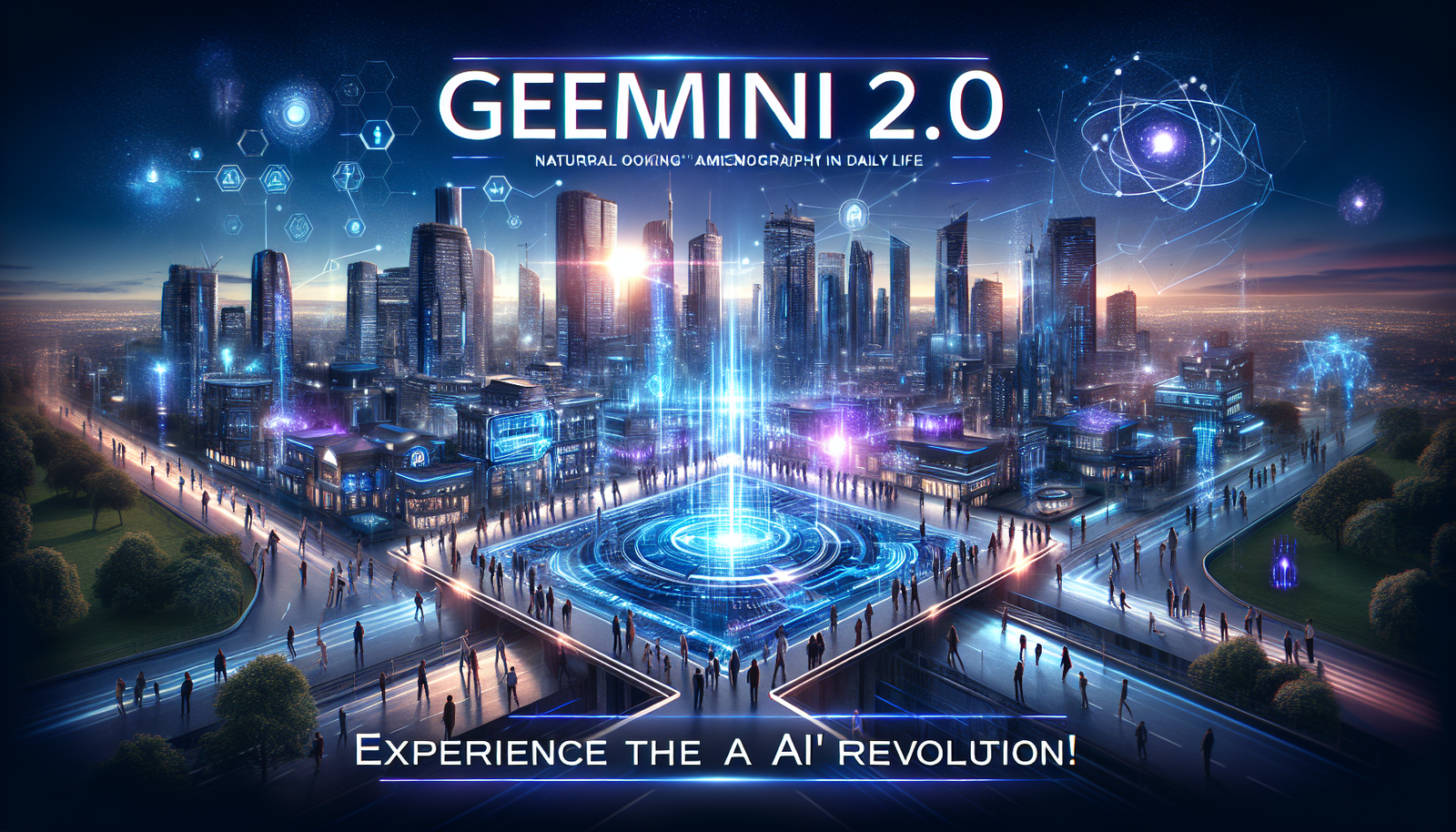Gemini 2.0 redefines the architecture of artificial intelligence, raising the standards of technological autonomy. This revolution concludes a journey of 26 years marked by spectacular advancements, propelling Google to the heart of contemporary challenges. The Gemini 2.0 model transcends previous capabilities, bringing innovative tools to make AI truly *useful* and integrated into daily life. The *multimodal tools* open new perspectives for developers and businesses, strengthening Google’s position in an era where human interaction with technology becomes omnipresent.
The launch of Gemini 2.0
Google recently announced the launch of Gemini 2.0, a significant advancement in the field of artificial intelligence. This model represents a significant evolution compared to its predecessor, Gemini 1.0, introduced last year. Gemini 2.0 incorporates advanced multimodal capabilities and includes tools designed to transform user interaction with AI.
Innovative features
The new iteration stands out for its ability to natively generate images and audio, thus offering an enriched user experience. One of the notable features is the improved response speed, allowing for more efficient processing of complex queries. By integrating tools such as Google Search and user-defined functions, the possibilities for interaction multiply for developers and businesses.
An era of universal assistance
Gemini 2.0 aims to make AI a universal assistant capable of considering various contexts and complex reasoning. Sundar Pichai, the CEO of Google, stated that this advancement marks the beginning of an agentic era where AI can anticipate users’ needs and act on their behalf, under their supervision.
Responsible development
Alongside technological development, Google emphasizes the need to prioritize security and ethics in AI. The new features have undergone rigorous risk assessments, under the supervision of the Accountability and Safety Committee. This framework aims to mitigate potential risks associated with the growing use of AI.
Prototypes for the future
Google is also exploring prototypes such as Project Astra, serving as a universal assistant, and Project Mariner, a web automation assistant. The first, tested on Android, enables multilingual interactions and has demonstrated a dialogue capacity close to that of humans. The second, focused on web navigation, achieved a success rate of 83.5% in demanding tests.
Diverse applications
The implications of Gemini 2.0 extend beyond the simple framework of text assistance. Projects like Jules, a coding agent for developers, promise to optimize the development process. By directly integrating GitHub workflows, Jules empowers developers to tackle complex challenges.
Towards new horizons
Google is also deepening applications in the video game domain. Collaboration with partners such as Supercell explores how intelligent AI agents can enhance the user experience by providing real-time gaming strategies. This showcases the potential of Gemini 2.0 to influence various sectors.
Commitment to security and privacy
Google plans to implement measures to protect user privacy, aiming to limit potential abuses. Projects like Project Mariner have been designed to respect user instructions while defending against malicious prompt injections.
Training through innovation
The new models have been trained using sixth-generation Tensor processing units, called Trillium. Pichai mentioned that these units have been essential for the training and inference of Gemini 2.0. Trillium will also be accessible to external developers, enhancing innovation capacities within the AI ecosystem.
Strategic vision
With Gemini 2.0, Google continues to redefine the boundaries of artificial intelligence. The ambition to build a universal assistant profoundly transforms interactions between humans and technology. The numerous ongoing projects demonstrate a clear commitment to a more accessible and intuitively effective AI.
To delve deeper into this theme, trends in AI, such as autonomous vehicles or investments in innovation, fit within this dynamic of constant evolution. The cobots and other advancements promise essential interconnections between AI and the physical world.
Frequently Asked Questions about Gemini 2.0: Google paves the way for a new era of autonomous AI
What are the main improvements brought by Gemini 2.0 compared to Gemini 1.0?
Gemini 2.0 introduces advanced multimodal capabilities, better reasoning, and innovative user tools, allowing for native generation of images and audio, as well as real-time decision-making.
How does Gemini 2.0 support users in their everyday tasks?
Gemini 2.0 acts as a universal assistant, capable of handling complex queries by combining textual, visual, and auditory information, thus enhancing user efficiency across various applications.
Is Gemini 2.0 accessible for developers and businesses?
Yes, developers and businesses can access Gemini 2.0 Flash via the Gemini API in Google AI Studio and Vertex AI, with a rollout planned for larger models in early 2024.
What are the experimental features of Gemini 2.0?
Experimental features include prototypes like Project Astra, a universal AI assistant, and Project Mariner, a web navigation assistant, which leverage Gemini 2.0’s multimodal capabilities.
How does Google ensure security and accountability in the development of Gemini 2.0?
Google has conducted rigorous risk assessments and implemented security measures to protect user privacy while integrating controls to prevent abuse and ensure the reliability of AI agents.
What types of queries can Gemini 2.0 effectively handle?
Gemini 2.0 is designed to manage complex queries, such as advanced math problems, coding requests, and multimodal questions, providing detailed and contextual answers.
When will the mobile application of Gemini 2.0 be available?
An optimized version of Gemini 2.0 for chat is already available on desktop and mobile, with a full mobile application rollout imminent for all users.
What infrastructures support the operation of Gemini 2.0?
Gemini 2.0 has been trained using Google’s sixth-generation Tensor processing units, Trillium, which ensure training and inference capabilities for the model.
What sectors could benefit from the implementation of Gemini 2.0?
Gemini 2.0 has potential applications in many areas, including education, healthcare, software development, customer service, and business process automation.
How can users interact with Gemini 2.0’s AI in their daily lives?
Users can interact with Gemini 2.0 through various optimized user tools and interfaces, facilitating multilingual dialogues and personalized responses tailored to their needs.






